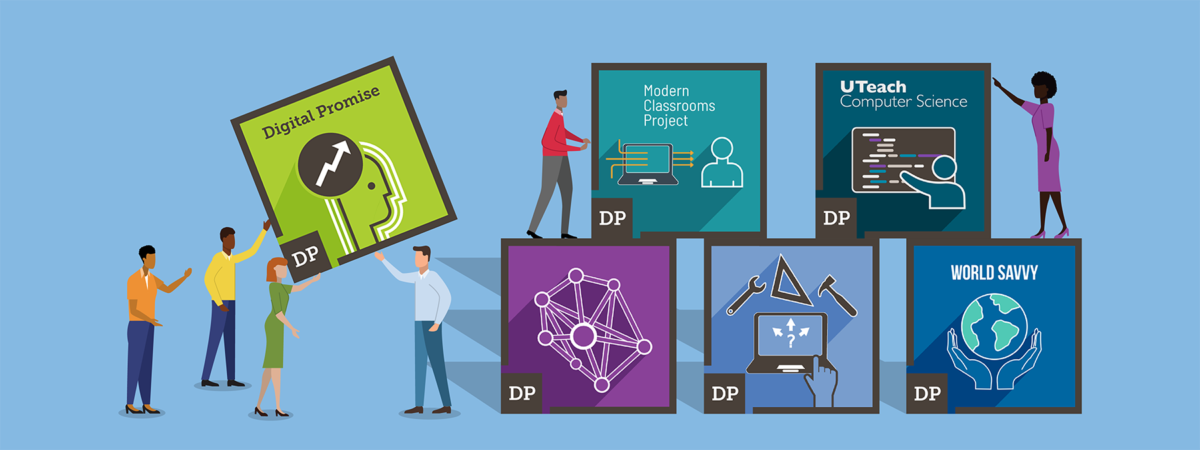
Micro-credentials are particularly well-suited for introducing emerging technologies and content. Offering greater flexibility than one-time, sit-and-get professional development, micro-credentials can serve as a vehicle for just-in-time, embedded learning in high-demand areas like computational thinking.
Our new white paper captures experiences and insights from educators and administrators as their five districts integrated micro-credentials in support of professional learning around computational thinking as part of the Computational Thinking for Next Generation Science Standards (NGSS) Challenge Collaborative. The paper examines ideas for deepening learning through micro-credentials and approaches to sustaining and expanding the role of micro-credentials in professional learning; offers strategies for effectively integrating micro-credentials and facilitating learning through micro-credentials; and provides insights on evolving policies for micro-credential integration.
Eighty-four percent of participating teachers surveyed agreed that completing micro-credentials was significant to their learning about computational thinking, indicating that completing the micro-credential helped them target computational thinking practices in their lessons.
For districts to formally integrate micro-credentials into professional learning, they must:
Read the full white paper, “Integrating Micro-credentials into Professional Learning: Lessons from Five Districts,” and join us for a webinar on October 29 at 10 a.m. PT/1 p.m. ET. Visit digitalpromise.org/microcredentials to learn how your district can embed micro-credentials into professional learning for educators, and explore the Digital Promise Micro-credential Platform to earn computational thinking micro-credentials.